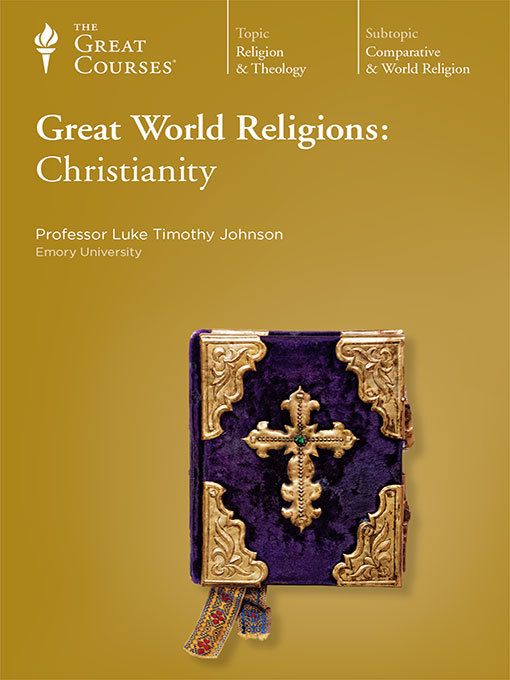These 12 lectures are an engaging and comprehensive introduction to one of the world's greatest faiths. By concentrating on the basics that every well-educated individual should know, Professor Johnson's lectures provide you with a clear survey of the most important elements of this religious tradition-and a framework for further study. In this lecture series, you'll consider fundamental issues including Christianity's birth and expansion across the Mediterranean world, the development of its doctrine, its transformation after Christianity became the imperial religion of Rome, its many and deep connections to Western culture, and the tensions within Christianity today. Professor Johnson's synthetic approach provides first an overview of the Christian story, how it understands history from creation to new creation - and the relation of scripture to that history, and the Christian creed: what Christians believe about God, Jesus, the Holy Spirit, and the church. He also explains Christian practice as expressed by the structure of the community and its sacraments, by the struggles of Christians to find a coherent and consistent moral teaching, and by various manifestations of Christianity's more radical edge in martyrs, missionaries, and mystics. By the end of this engaging and accessible series, you'll finally have a true grasp of Christianity's distinctive character, the major turning points in its history, its most important shared beliefs and practices, and, above all, its continuing appeal to many of the world's peoples.
These 12 lectures are an engaging and comprehensive introduction to one of the world's greatest faiths. By concentrating on the basics that every well-educated individual should know, Professor Johnson's lectures provide you with a clear survey of the most important elements of this religious tradition-and a framework for further study. In this lecture series, you'll consider fundamental issues including Christianity's birth and expansion across the Mediterranean world, the development of its doctrine, its transformation after Christianity became the imperial religion of Rome, its many and deep connections to Western culture, and the tensions within Christianity today. Professor Johnson's synthetic approach provides first an overview of the Christian story, how it understands history from creation to new creation - and the relation of scripture to that history, and the Christian creed: what Christians believe about God, Jesus, the Holy Spirit, and the church. He also explains Christian practice as expressed by the structure of the community and its sacraments, by the struggles of Christians to find a coherent and consistent moral teaching, and by various manifestations of Christianity's more radical edge in martyrs, missionaries, and mystics. By the end of this engaging and accessible series, you'll finally have a true grasp of Christianity's distinctive character, the major turning points in its history, its most important shared beliefs and practices, and, above all, its continuing appeal to many of the world's peoples.


